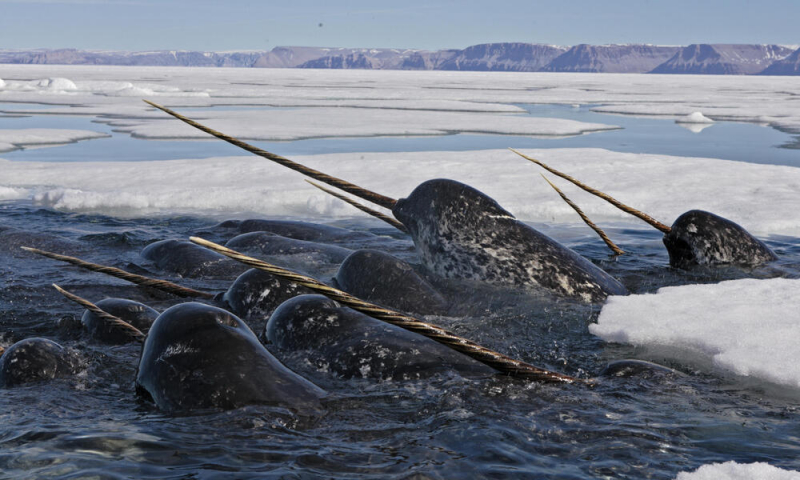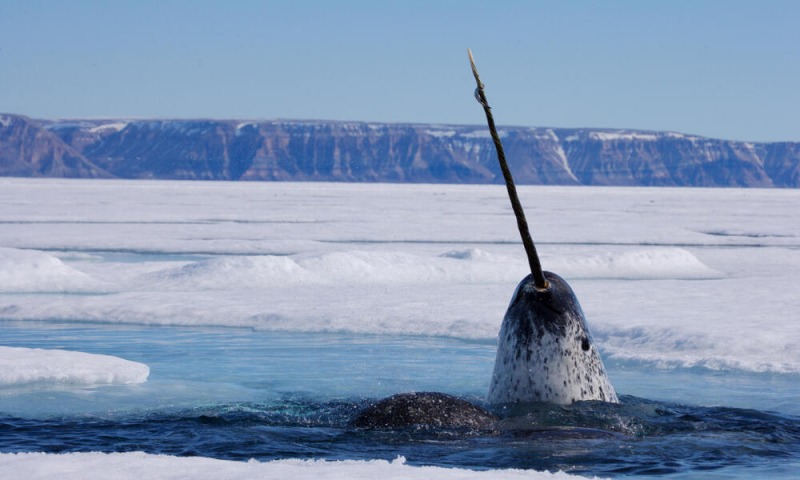Narwhal
The narwhal, also known as a narwhale (Monodon monoceros), is a medium-sized toothed whale that possesses a large "tusk" from a protruding canine tooth. Narwhals are medium-sized whales, similar to belugas. The overall body size can vary between 3.95 and 5.5 m (13 to 18 ft) for both sexes, excluding the male's tusk. Males are slightly larger than females. An adult narwhal typically weighs between 800 and 1,600 kg (1,760 to 3,530 lb). Males reach sexual maturity around the age of 11 to 13 whereas females do so around the age of 5 to 8. In addition to lacking a dorsal fin, narwhals have jointed neck vertebrae rather than fused ones like dolphins and the majority of whales.
The narwhal is a highly specialized Arctic predator that is mostly found in the Canadian Arctic, Greenlandic waterways, and Russian waters. Under thick pack ice, it consumes primarily flatfish as benthic prey during the winter. Narwhals mostly consume Arctic cod and Greenland halibut throughout the summer, with other species like polar cod making up the rest of their diet. As summer approaches, they go from bays into the ocean every year. The male narwhals periodically make dives in the winter that can last up to 25 minutes and reach a depth of 1,500 m (4,920 ft). Like the majority of toothed whales, narwhals use "clicks", "whistles", and "knocks" to communicate.












